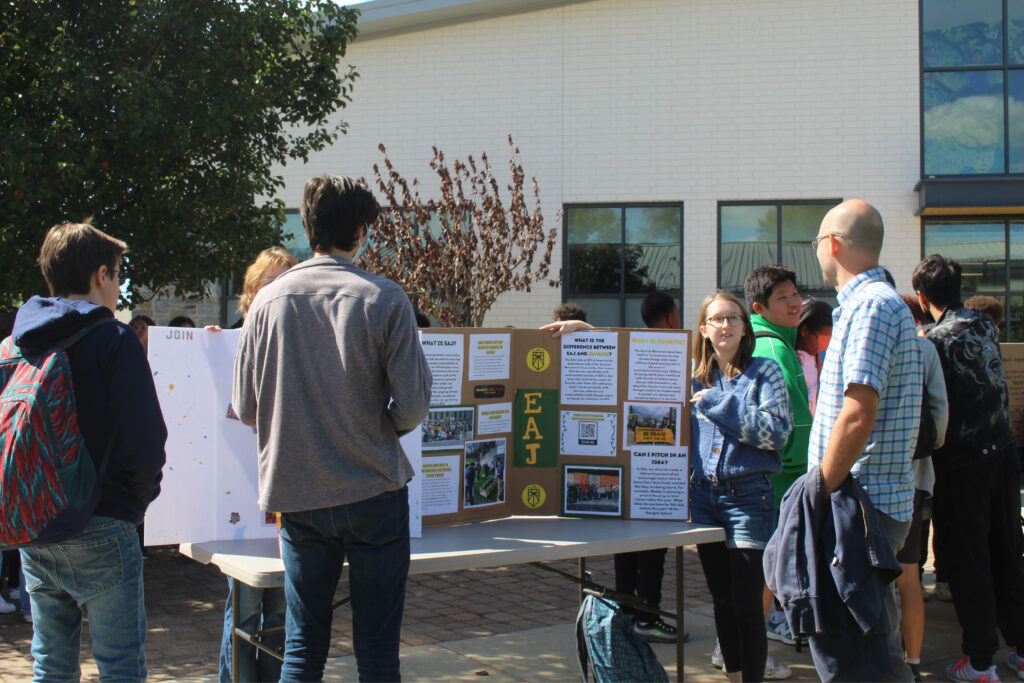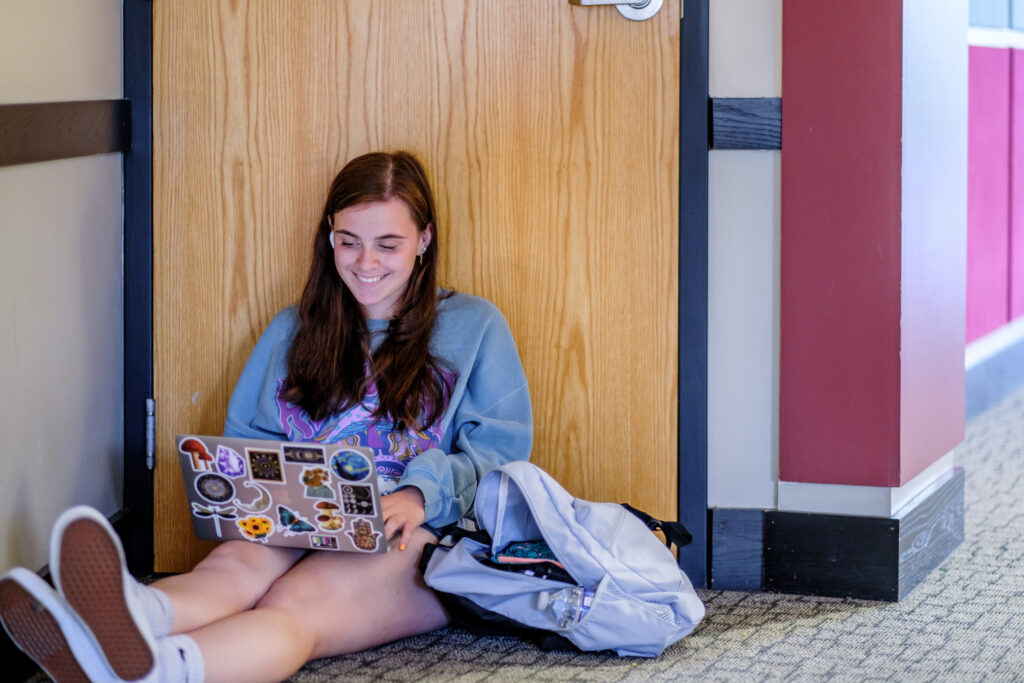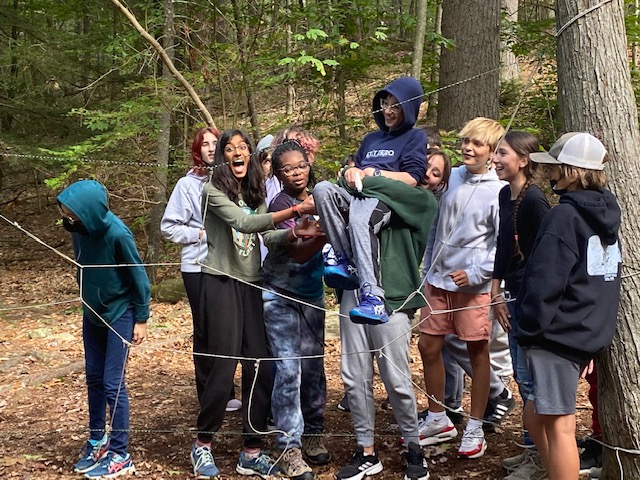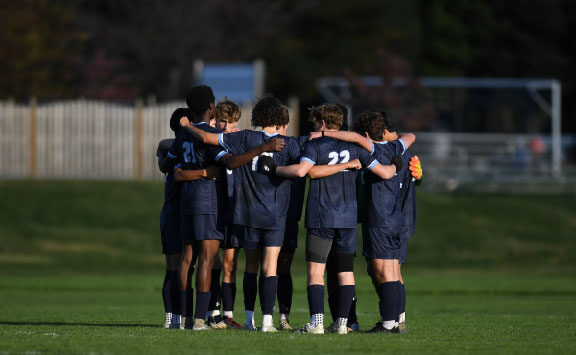The transition from Middle School to Upper School can challenge students in several ways. Teachers’ expectations are different, and students are given more responsibilities and greater independence.
It is important that Middle School students recognize that the transition can be challenging in a positive way, and that support is readily available. Last Monday, seven Upper School students at Abington Friends School volunteered to advise current eighth graders on how best to navigate this transition.
Here are four tips that came out of that conversation that can empower Middle School students to make the most of their journey as they prepare to take on the Upper School.
1. Give Yourself Time to Adapt
Why It’s important. Everyone needs time to get used to something new. Give yourself a bit of grace during the transition.

When joining the Upper School, students might think that they need to understand and internalize all the changes immediately. But students should remember to give themselves a bit of grace during the transition.
“You’re meeting new people, you have a new schedule, new teachers, even new lunch periods,” explains Logan ’26. “ You have to take time to get used to the newness.”
Take some time to recognize the things that will become your new normal. For example, Upper School Division Director Brendon Jobs looks at the lunch period as a pillar of the day. “Every day, we have a community block, and right after that Upper Schoolers are allowed to go down to lunch,” he explained. “Folks can eat lunch in various areas around the school, but you are asked to take stewardship of these spaces seriously.”
Similarly, taking the time to get used to new technologies, like the learning management software Canvas, can give you a leg-up on your classwork and prepare you for when Upper School starts to get busy.
“Canvas can be hard to navigate at first, but it gives you more options for how to get your work done,” explains Angela ’25. “You can see homework that’s due soon, see upcoming tests, and check your grades.”
“It’s like a virtual classroom for every class you’re taking,” says Grace ’23. “The calendar really helps me, because I can see everything that’s due on a specific day.”
2. Use Your Newfound Free Time Responsibly
Why It’s important. It can be more fun to socialize with friends, but you need to have a plan to get your work done.

The new freedoms that Upper School students are granted can be dizzying. Students have a lot more control over their schedule, but that also means that students who do not keep track of their time might fall into bad habits.
“At least for me, it felt like a lot more homework going into high school,” says Serafina ’26. “But you also have office hours, study halls, and free times that you can use to get work done, which is important because the deadlines can be stricter.”
Students in 9th and 10th grade have silent study halls with a proctor, but older students have free periods with more latitude to choose what to do. Occasionally, students might have time to socialize with friends, but they need to make sure you have a plan for when you get your work done.
But, Maddie warns, that’s why it is so important to make work a habit – and to figure out how best you operate to get it done.
“I sit in the exact same place in the library every free period,” she says. “I know this about myself — I can’t do work after school; I lose focus, so I make sure to use those free periods to get my work done. I know that I need to be quiet, and being near my friends will distract me. So you really need to know what space you need to get work done.”
3. Try Something New
Why It’s important. Trying new things can teach you things about yourself and introduce you to unexpected friends.
Upper School carves out time for students to do something that they’ve always wanted to do but never had the chance to try. There are a lot of different extracurricular opportunities, whether that’s in athletics or the arts, and students are encouraged to try as many as they would like to find what brings them joy.
Students are incentivized to engage in community activities through RooPACS (or Physical Activity Credits). As Rain ’26 explains, students are required to obtain a certain number of RooPAC credits every school year.
“You get one from doing the musical, being in JMAAS, joining Roobotics,” they explain. “You can do a sport, be a student leader, or take a PE class. And you can even do out-of-school activities; for example, I do rock-climbing, and that counts for credit.”
“RooPACs help inspire students to participate in a robust community life,” says Brendon. “It encourages people to really dig in, make friends and become a member of the Upper School family.”
4. Remember that Everyone Can Do It
Why It’s important. Doing challenging things can be rewarding!

Graduating into a new school space can be difficult for even the most confident students, but the most important thing to remember is that success is more than possible. Everyone in the Upper School, from your peers to your teachers all the way up to Brendon, are rooting for your success.
“It can definitely feel daunting, but everyone is really nice, and it’s a lot more of a family feeling,” says Serafina ’26. “You get to make friends of different grades through sports and classes.”
Jeremiah ’23 agrees, encouraging students to make the most of their time in Upper School, but also to take their coursework seriously.
“The work picks up during junior year, and people talk about how it’s very important to college,” he explains. “But you need to take all four years seriously. Every year is important.”
“Every single one of you is capable of doing this,” says Grace. “You can do it. It’s just — are you going to do it?”
Special thanks to the students who agreed to speak at the 8th-9th transition event: Logan ‘26, Serafina ‘26, Jeremiah ‘23, Grace ‘23, Rain ‘25, Angela ‘25 and Maddie ‘23.

